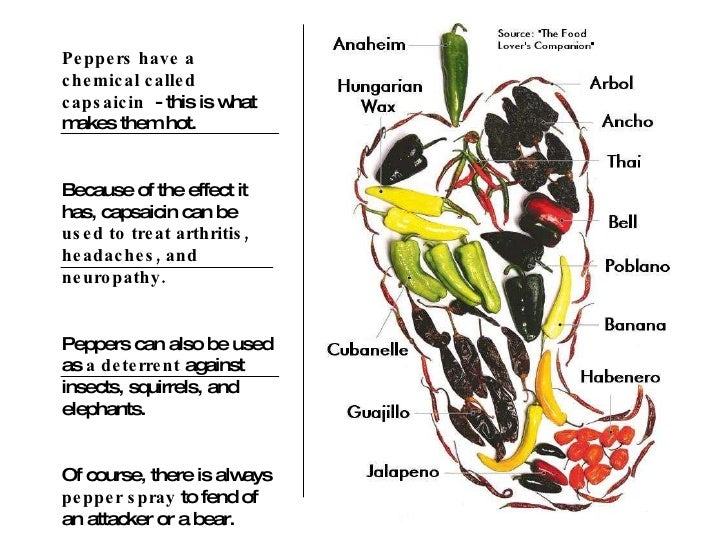The reason why peppers taste hot is because of a chemical compound called capsaicin which bonds to your sensory nerves and tricks them into thinking your mouth is actually being burned

The Science behind the Hotness of Peppers

Have you ever wondered why peppers taste hot? The answer lies in a remarkable chemical compound called capsaicin. Capsaicin is responsible for the fiery sensation you experience when you eat a hot pepper, and it has a fascinating effect on your sensory nerves, tricking them into thinking that your mouth is actually being burned.
Capsaicin, found primarily in chili peppers, is a natural defense mechanism developed by these plants to fend off potential predators. When a pepper is bitten into or cut, capsaicin is released, causing an intense burning sensation. But how does this compound actually work?
When capsaicin comes into contact with your tongue, it binds to receptors on your sensory nerves, specifically those that are responsible for detecting pain and heat - known as the transient receptor potential (TRP) ion channel. This interaction triggers a series of nerve signals that are interpreted by your brain as a burning sensation.
It is important to note that capsaicin does not physically burn your mouth. It simply tricks your nerves into perceiving the sensation of heat without any actual harm being done. This phenomenon, known as chemesthesis, is the reason why you might feel a tingling or numbing sensation when you consume hot peppers.

Interestingly, the intensity of the burning sensation varies from pepper to pepper. This is because different types and varieties of peppers have varying levels of capsaicin. The Scoville scale, named after pharmacist Wilbur Scoville, measures the heat of peppers and other spicy foods. Bell peppers, for example, have a Scoville score of zero, while the Carolina Reaper, one of the hottest peppers in the world, measures over two million Scoville heat units (SHU).
While the burning sensation caused by capsaicin is temporary and harmless, it can still be quite uncomfortable for some individuals. However, capsaicin has some surprising health benefits. It has been shown to have pain-relieving properties and can even boost metabolism. The compound is used in topical creams and patches for its analgesic effects and is a key ingredient in some weight-loss supplements.
In conclusion, the hotness of peppers is primarily due to capsaicin, a chemical compound that interacts with your sensory nerves, tricking them into perceiving a burning sensation. Whether you enjoy the fiery taste of hot peppers or prefer a milder flavor, understanding the science behind their heat adds another layer of appreciation for these vibrant and powerful little fruits.
Source: todayifoundout.com
Tags
Share
Related Posts
Quick Links
Legal Stuff

